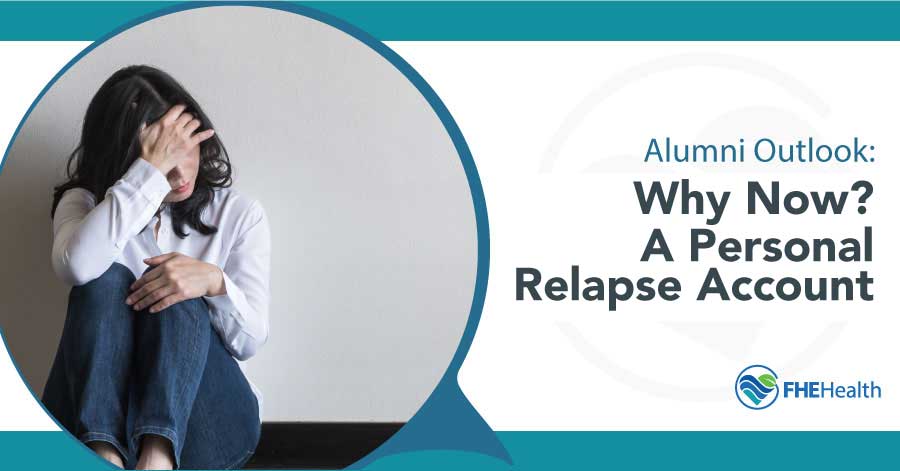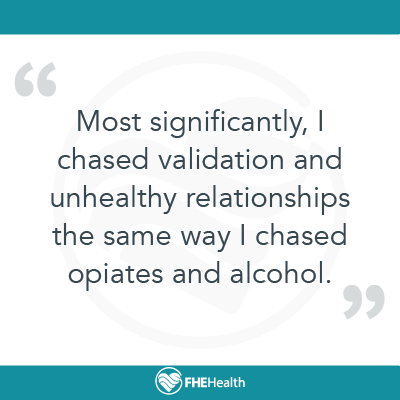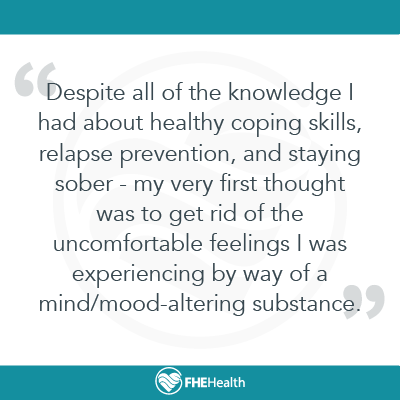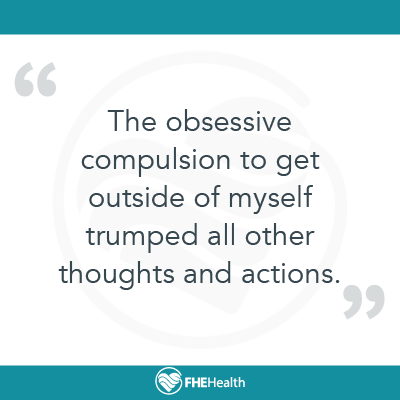
If your loved one suffers from the disease of addiction or you personally find yourself battling this baffling disorder, then it is likely that you are familiar with the ever so stigmatized conversation of relapse. Addiction is described as a “chronic relapsing disease of the brain.” There is a relevant tone to this definition – especially for those of us who have walked this treacherous road.
My Experience with Relapse
 Personally speaking, relapse was a very real and painful part of my journey. With almost four years sober, I find that the longer I trudge the road to recovery the less I actually know. Recovery is hard, painful, but so humbling. The insidious nature of addiction revolves around the seemingly unexplainable behaviors of the individuals plagued by this disease.
Personally speaking, relapse was a very real and painful part of my journey. With almost four years sober, I find that the longer I trudge the road to recovery the less I actually know. Recovery is hard, painful, but so humbling. The insidious nature of addiction revolves around the seemingly unexplainable behaviors of the individuals plagued by this disease.
Addiction is a disorder that is characterized by obsessive and compulsive behaviors. Keeping up with total transparency, I came into rehab believing that I simply had a problem with drugs and alcohol. I was completely unaware of the stark nature of what I was truly up against. Described as a three-fold illness, addiction plagues my mental, physiological, and spiritual condition. In other words, I didn’t know how to handle life on life’s terms; therefore, drugs and alcohol became a part of my solution for a very long time.
Old Habits of Abuse
It was almost second nature for a drink or drug to be running through my body. Happy about a job promotion? Drink. Sad over the loss of a loved one? Drink. Bored in the house on a rainy day? Drink. Angry after getting cut off in traffic? Drink. Fearful of the future? Drink. You see, I used drugs and alcohol because I liked the way it made me feel. Oblivion was the ultimate goal.
As you can imagine, walking into rehab with the overwhelming thoughts of never drinking again served as an obsessive distraction that prevented me from diving deep into understanding why I did the things I did. Eventually, I began diving into some of the traumas that contributed to my innate desire to avoid any uncomfortable feelings. It’s true, I learned a lot about addiction while I attended treatment. I learned that I suffered from a disease that is progressively fatal if I refuse to maintain a healthy spiritual condition and the second I consume ANY mood or mind-altering substance.
The Insanity of Addiction
 Do you want to understand the insanity of the disease of addiction? I left rehab and almost instantaneously I found myself surrounded by similar people, places, and things. I began distancing myself from the people who held me accountable. I avoided step work. I went to meetings simply with the purpose of socializing. I withdrew from my family members. I wasn’t interested in much of anything that didn’t involve having a good time and putting myself first. Most significantly, I chased validation and unhealthy relationships the same way I chased opiates and alcohol.
Do you want to understand the insanity of the disease of addiction? I left rehab and almost instantaneously I found myself surrounded by similar people, places, and things. I began distancing myself from the people who held me accountable. I avoided step work. I went to meetings simply with the purpose of socializing. I withdrew from my family members. I wasn’t interested in much of anything that didn’t involve having a good time and putting myself first. Most significantly, I chased validation and unhealthy relationships the same way I chased opiates and alcohol.
So, the story goes, it wasn’t long before I found myself in yet another victimizing situation. I was almost 10 months sober and I went with a friend to hang out with some guys for the Super bowl. Upon entering the house, I never questioned if they were sober and my gut was telling me to walk out of the house long before I got my second foot through the door. Again, all logic escaped me. I proceeded into the precarious situation, refused the screaming voices of go home in my head, and eventually found myself a victim of sexual assault. My brain went instantly to: No one’s going to believe you if you talk about this, but I know what will help – let’s go get a drink at the bar.
Denial of Responsibility
It was off to the races. I left the house and never called my sponsor. I didn’t hit a meeting or reach out to my family to tell them about what happened. Despite all of the knowledge I had about healthy coping skills, relapse prevention, and staying sober – my very first thought was to get rid of the uncomfortable feelings I was experiencing by way of a mind/mood-altering substance.
I completely justified and rationalized every ounce of my relapse. The 10 months of sobriety still counted right? I mean I wasn’t looking for opiates, I just wanted to have a drink and smoke some weed. I was thoroughly convinced I could control my drinking. This insanity fueled my decision to head to a bar in Fort Lauderdale that night. I’d love to sit and tell you that at some point I felt guilty and assessed the risk vs. reward, but the truth is – those thoughts never came. The obsessive compulsion to get outside of myself trumped all other thoughts and actions.
Not one time did I consider the risk of drinking and smoking weed while newly on probation. I didn’t consider the risk of losing my son. Thoughts of how my relapse may affect my heartbroken and fearful father never crossed my mind. THAT is the insidious nature of this disease. Left to my own devices – self will run riot – I will drink again.
Depths of Relapse
I’d love to tell you I had one drink and then returned home, ridden with guilt, and confessing my shortcomings to members of the Fellowship – but that isn’t what happened. I went to drink with the intention of getting drunk. I didn’t plan to smoke weed but it was available. In one night, I was completely wasted and dancing on a bar in Fort Lauderdale. The night ended with my phone being stolen and the instant obsession returning as if I never stopped drinking.
 I withdrew from the IOP program at FHE, to avoid the obvious drug tests. I rode along for weed smoking sessions instead of attending AA meetings. I began justifying 6 beers at dinner because I believed I wasn’t an alcoholic and alcohol is legal. I began dodging phone calls from my family and avoiding my aunt’s house in order to further support my relapse. It wasn’t too long before I found myself with opiates in hand and absolutely no idea how I got to this place again.
I withdrew from the IOP program at FHE, to avoid the obvious drug tests. I rode along for weed smoking sessions instead of attending AA meetings. I began justifying 6 beers at dinner because I believed I wasn’t an alcoholic and alcohol is legal. I began dodging phone calls from my family and avoiding my aunt’s house in order to further support my relapse. It wasn’t too long before I found myself with opiates in hand and absolutely no idea how I got to this place again.
I didn’t pick up a drink with the thought of using opiates again. I also didn’t think much about what the future with me drinking would look like. It wasn’t until I was caught crushing up pills in the bathroom, by my sober boyfriend at the time, that I even considered that what I was doing was dangerous. Initially, I was sorry I got caught but for the first time in my life that feeling actually bothered me enough to look at what was actually happening.
I knew what I was risking by drinking and using again. I knew I could violate the conditions of my probation and ultimately land in prison, forfeiting any rights to my son. I knew I could break every ounce of trust I was reestablishing with my family and friends. Yet, from the moment I began neglecting the suggestions I was given in sobriety not once did I consider the treacherous outcome.
Finding Recovery After Relapse
Thank God I was able to reach out for help and get honest about my experience. I believe that if we are not constantly challenging our thoughts and actions then we are predisposing ourselves to fall back into our old behaviors and potentially relapsing. If you have a loved one that battles with this disease, understand that relapse may be a part of their story – but it doesn’t have to be. If you or your loved one experiences a relapse, remember that it’s not about how hard you fall but it’s about what you do after you fall. Get back up, don’t give up, and take it one day at a time.






